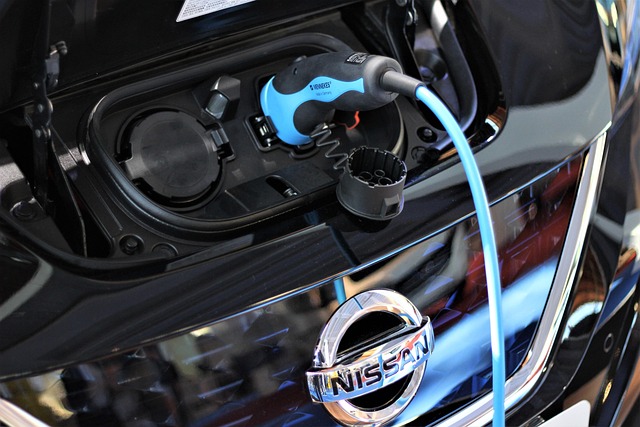Water scarcity demands innovative solutions in agriculture, with recycled water and tankless heaters leading the way. Recycled water cuts freshwater usage, addresses global scarcity, and secures crops' water supply without depleting local sources. Tankless heaters optimize hot water management in irrigation, reducing energy use and waste. Sustainable irrigation practices include transitioning to efficient methods, using smart technology, and adopting targeted root watering. Case studies show successful integration of recycled water and tankless heaters, leading to reduced freshwater consumption, healthier crops, and enhanced soil conditions, making it a promising solution for future farming.
In an era defined by water scarcity and environmental stewardship, choosing sustainable irrigation practices is no longer an option but a necessity. This article explores the powerful solution of recycled water for agriculture, delving into its benefits and the role of tankless heaters in efficient water usage. We provide a comprehensive guide to implementing sustainable irrigation and share inspiring case studies of successful adoptions, highlighting how these innovations are revolutionizing farming.
- Understanding Water Scarcity and Its Impact on Agriculture
- The Benefits of Recycled Water for Irrigation
- How Tankless Heaters Contribute to Efficient Water Usage
- Implementing Sustainable Irrigation Practices: A Step-by-Step Guide
- Case Studies: Successful Adoption of Recycled Water in Agriculture
Understanding Water Scarcity and Its Impact on Agriculture

Water scarcity is a growing concern worldwide, and its impact on agriculture is profound. With traditional water sources becoming increasingly strained, farmers are looking for sustainable alternatives to ensure their crops receive adequate hydration. This issue is particularly acute in regions experiencing prolonged droughts or rapid population growth, leading to heightened competition for freshwater resources.
Agriculture accounts for a significant portion of global water consumption, and inefficient irrigation practices exacerbate the problem. By adopting recycled water for irrigation, farmers can contribute to water conservation efforts. Tankless heaters, for instance, offer an innovative solution by enabling on-demand hot water generation, reducing waste and energy consumption. This shift towards sustainable water management practices is essential in ensuring food security and preserving precious freshwater resources for future generations.
The Benefits of Recycled Water for Irrigation

Recycled water, also known as reclaimed water, offers a sustainable and eco-friendly solution for irrigation, bringing numerous advantages to both environmental and economic domains. One of its key benefits is the significant reduction in freshwater usage, which is essential given the global water scarcity issues. By implementing recycled water systems, especially in regions facing drought or high water demand, farmers and agricultural businesses can ensure a reliable water supply for their crops without depleting local freshwater sources.
Moreover, using recycled water can lead to cost savings. Traditional irrigation often relies on municipal water supplies or well water, which can be expensive, especially when energy-intensive processes like desalination are involved. With tankless heaters and advanced recycling technologies, the process becomes more efficient and economical. This sustainable practice not only reduces operational costs but also contributes to a greener environment by lowering the carbon footprint associated with traditional water extraction and transportation methods.
How Tankless Heaters Contribute to Efficient Water Usage

Tankless heaters play a pivotal role in promoting efficient water usage for irrigation, especially in agricultural settings. Unlike traditional storage heaters, these innovative systems provide hot water on demand, eliminating the need for constant heating and storage of large volumes of water. This simple yet powerful change significantly reduces energy consumption and minimizes waste.
By not storing water, tankless heaters lower the overall energy demands of a facility, leading to substantial savings on utility bills. Moreover, this technology ensures that hot water is only produced when needed, further enhancing water efficiency. This direct heating approach is particularly beneficial for irrigation systems, as it allows for precise control over water usage, ensuring every drop counts towards plant growth and reducing wastage.
Implementing Sustainable Irrigation Practices: A Step-by-Step Guide

Implementing sustainable irrigation practices is a multi-step process that can significantly benefit the environment and your water bill. Start by evaluating your current watering system. If you’re using traditional tank-based systems, consider transitioning to more efficient options like tankless heaters for water heating. These heaters provide hot water on demand, reducing energy consumption and water wastage associated with keeping large tanks filled.
Next, adopt smart irrigation technology. Install timers and moisture sensors that ensure your plants receive the right amount of water at the optimal time. This prevents overwatering, conserves water, and promotes healthier plant growth. Additionally, explore drip irrigation or micro-sprinklers, which deliver water directly to plant roots, minimizing evaporation and run-off. These practices are a step towards a more sustainable future, ensuring your garden thrives while preserving our precious water resources.
Case Studies: Successful Adoption of Recycled Water in Agriculture

In recent years, several case studies have demonstrated the successful adoption of recycled water for irrigation in agriculture. These examples highlight the significant benefits of using treated wastewater for crop growth, including reduced freshwater consumption and improved land management practices. For instance, in regions facing severe water scarcity, farmers have adopted tankless heaters and advanced water recycling systems to purify and distribute reclaimed water efficiently. Such technologies not only ensure a consistent water supply but also reduce environmental impact by minimizing the energy required for traditional water treatment methods.
Moreover, these case studies show that recycled water can lead to healthier crops and improved soil conditions. By replacing freshwater with treated wastewater, farmers can mitigate the risk of groundwater contamination and salt accumulation in soils. This sustainable approach not only supports agricultural productivity but also contributes to broader environmental conservation efforts, making it a promising solution for future farming practices.
